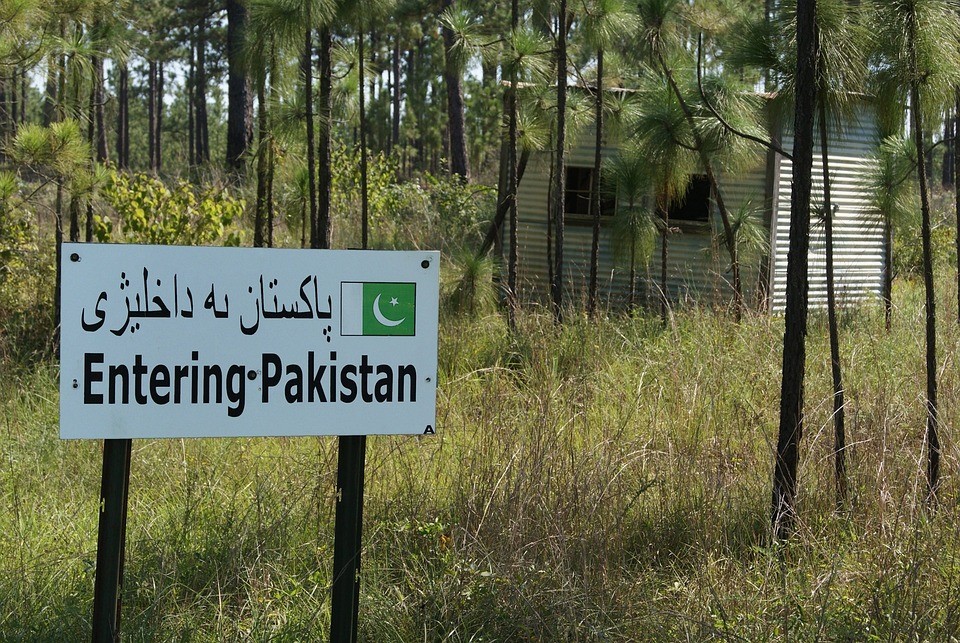Military experts are watching Russia closely after Putin’s nuclear threat toward the West. Political analysts are looking eastward toward China after Xi Jinping’s unprecedented consolidation of power during last week’s National Party Congress. Few, however, are paying attention to the supercharged environment in Pakistan since April when then-Prime Minister Imran Khan was ousted in a parliamentary no-confidence vote.
He blames the United States, claiming Washington colluded with Pakistan’s Army to remove him from office. When he demanded the new government step down, it responded by cracking down on Khan and those attending his expansive rallies. A week ago, the Pakistan Election Commission found Khan guilty of corrupt practices and barred him from politics. The charge was that he allegedly failed to disclose money he received from gifts sold that were given to him by foreign dignitaries.
“Two days later, Arshad Sharif, one of Pakistan’s most prominent journalists, was killed” by police in a case of mistaken identity in Nairobi, according to Reuters. “These developments not only threaten to intensify Pakistan’s political polarization, but they also increase the uncertainty swirling around its immediate political future,” according to Michael Kugelman, writing in Foreign Affairs. Although Khan acknowledges his opponents had a political motivation, there is less certainty about the length of time he is disqualified from the political arena.
One High Court judge in Islamabad stated the punishment only extends over the present parliamentary term ending in fall 2023. If this is determined to be accurate, Khan would be free to run in Pakistan’s next national elections. Sharif’s death hit the nation hard. He was known to be close to Khan. Kugelman points out that he also supported the military until he lost his position at ARY News this summer after allegedly criticizing the military on social media. There is widespread speculation the current Pakistan government was involved in the killing with Kenyan authorities.
Pakistan has a history of assassinating Pakistani trust in the security institutions in the country has dramatically decreased recently while support for Khan is growing among his popular base. Despite the government offering to investigate the killing, few are satisfied that Islamabad will find the answer. This week Khan announced a modern “long march” of over 235 miles from Lahore to Islamabad, with supporters scheduled to arrive in the capital next Friday, November 4. They are demanding early elections. The government, fearing a loss, has rejected new elections. The big question remaining is how the government will react to the protesters once they reach the capital. In the past, Khan backed down when the government threatened a crack down. There are concerns he may not back down next week.
Kugelman says that in an extraordinary press conference on Thursday, “Pakistan’s army spokesperson and spy chief both denied many of Khan’s allegations about the military and the US government colluding in his ouster.” Analysts see this as an indication that the government will take a hard line when Khan and supporters arrive. Further confusing politics is Army Chief General Qamar Javed Bajwa’s decision not to seek another term next month in what is essentially the government’s most powerful position. The current government has yet to announce who will replace him, although it is unlikely to be a Khan supporter. Kugelman says the political atmosphere lately has the nation on edge.
The country already is suffering from high inflation with millions still in need of help from catastrophic flooding earlier this year. Pakistan is reeling from one problem to another, making it a hotbed for instability in the region. According to the Economic Times, on October 21, Khan announced he will remain “silent” as he does not want to “damage” the country and its institutions.
The question remaining is whether his statement is enough to keep a lid on potentially explosive violence in the capital once he and his supporters arrive. Khan says that although the government failed to protect protesters on May 25, his march will be peaceful and not enter the high security “red zone” in the capital. The government has yet to confirm its position on the march although Interior Minister Rana Sanaullah did tell reporters in Islamabad this week that if anyone is out of order the government plans to respond with an “iron hand.”
Daria Novak served in the U.S. State Department
Photo: Pixabay
